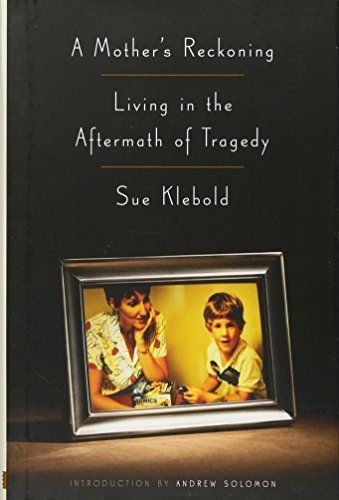
A Mother's Reckoning Living in the Aftermath of Tragedy
The acclaimed New York Times bestseller by Sue Klebold, mother of one of the Columbine shooters, about living in the aftermath of Columbine. On April 20, 1999, Eric Harris and Dylan Klebold walked into Columbine High School in Littleton, Colorado. Over the course of minutes, they would kill twelve students and a teacher and wound twenty-four others before taking their own lives. For the last sixteen years, Sue Klebold, Dylan’s mother, has lived with the indescribable grief and shame of that day. How could her child, the promising young man she had loved and raised, be responsible for such horror? And how, as his mother, had she not known something was wrong? Were there subtle signs she had missed? What, if anything, could she have done differently? These are questions that Klebold has grappled with every day since the Columbine tragedy. In A Mother’s Reckoning, she chronicles with unflinching honesty her journey as a mother trying to come to terms with the incomprehensible. In the hope that the insights and understanding she has gained may help other families recognize when a child is in distress, she tells her story in full, drawing upon her personal journals, the videos and writings that Dylan left behind, and on countless interviews with mental health experts. Filled with hard-won wisdom and compassion, A Mother’s Reckoning is a powerful and haunting book that sheds light on one of the most pressing issues of our time. And with fresh wounds from the Newtown and Charleston shootings, never has the need for understanding been more urgent. All author profits from the book will be donated to research and to charitable organizations focusing on mental health issues. — Washington Post, Best Memoirs of 2016
Reviews
Lindy@lindyb
Jaden Nelson@unojaden
Melissa Palmer@melissapalmer404
Lamia Hajani@lamafoyomama
Megan Snodgrass@snodingham
isaac b@p4rtyg0th
Caroline Lewicki@clewicki20
Alexia@apolasky
ericaa joycee@ericaajoycee
Cat@caityreads
Andrada D@andragel
Tina@lucreziaborgia
Essence@iridessence
Paige Wanner@turntopaige22
Mitz@mitz
bronte a@brontea
Kemie G@kemie
Melissa M.@mbminard
Bessie Small@bessiemo
Nessa Luna@octobertune
Hunter Sloan@huntersloann
Briar Rose@briarrosereads
Ashley Reber @adachic
Toni Lovely@tonilovely